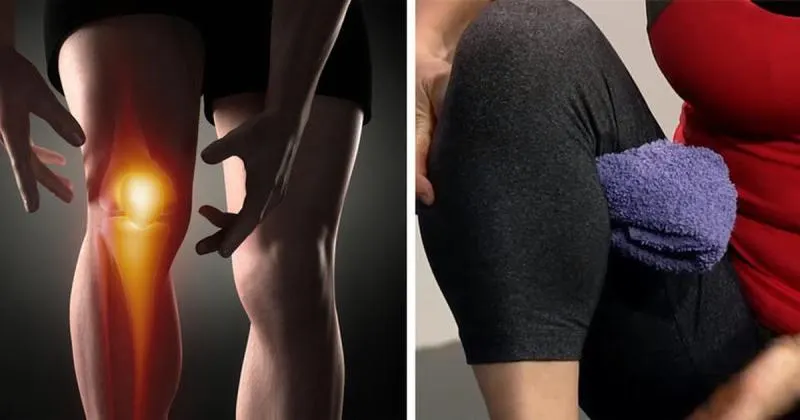
JOINT HEALTH – 6 Things You MUST Know:
- You should keep the surrounding muscles strong to reduce joint stress.
- Healthy weight will prevent excess strain.
- Sitting for long periods of time can cause joint pain. So, if you have to sit at your job, make sure you get up every 10 minutes and move.
- Nutrition is important for joint health (magnesium, calcium, and vitamin D are the nutrient trio responsible for bone health).
- If your knees hurt, stay away from vigorous exercise that will exacerbate the problem. Walking or pool aerobics will maintain mobility.
- Be very careful stretching cold muscles—you can do more harm than good. Warming up first is best if you can: a brisk 10-minute walk during a work break and followed by stretching will strengthen and invigorate.
Topical Treatments for Knee Pain
- Epsom salt, because it’s rich in magnesium. How to use it – just apply it on a sore joint. It allows the skin to absorb this important mineral, reducing inflammation and easing pain. A whole Epsom bath makes everything feel better—dissolve 2 tablespoons of Epsom salt in ½ a cup of water. Soak a cotton cloth with the mixture and place on the joint for 20 minutes, then rinse with warm water.
- Ginger has powerful anti-inflammatory properties.
- Lemon peels can reduce swelling and promote blood flow. It’s very simple – just grate a lemon rind, squeeze the bits together, apply to the knee, and cover with gauze for 2 hours for rapid relief.
- Vitamin D is very important for joint health. So, you should go outside in the sunshine for 20 minutes a day (without sunscreen).
- Coconut oil is a nutritious anti-inflammatory. Here’s what you need to do – just warm a teaspoon of solid coconut oil between your hands and rub your knees, first clockwise, then counter-clockwise for 10-15 minutes.
- Cayenne contains an anti-oxidant that inhibits pain transmitters.
Foods for Knee Pain
- Gelatin – because it contains collagen, a component of bones and connective tissue. And, make sure you always use the plain gelatin (not the sugar-filled popular brand). You can add this ingredient in yogurt, a smoothie, or flavored with fruit juice, honey, or herbs and spices. Eaten regularly, gelatin is good for the knees.
- Herbs: boswellia, evening primrose, and stinging nettle reduce inflammation and pain.
- Spices: turmeric, cayenne, ginger, and cinnamon are potent anti-inflammatories.
- Vitamin D: Fatty fish like sardines, tuna, wild salmon, and mackerel; organic orange juice; mushrooms; and eggs are good sources.
Source: Daily Health Post
